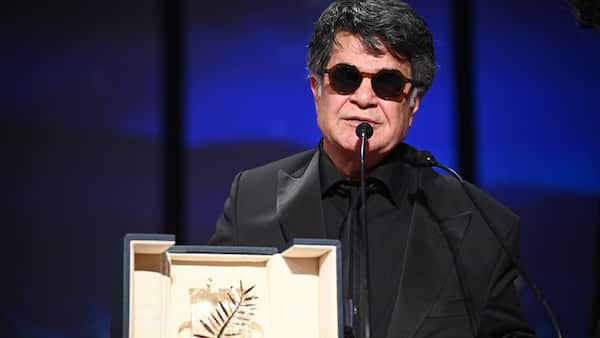Share this @internewscast.com
Jafar Panahi stands out as one of Iran’s most distinguished filmmakers, yet despite his impressive 30-year career, many of his films face bans in his native country.
He has faced accusations of “propaganda against the regime,” leading to two imprisonments since 2010. This has not deterred the 65-year-old director, who continues his filmmaking efforts in secret.
His recent film, It Was Just an Accident, was inspired by his prison experiences, particularly the time he spent in solitary confinement at Tehran’s infamous Evin prison in 2010.

Jafar Panahi made an unexpected appearance at the opening night of the Sydney Film Festival. Source: Supplied / SFF/Tim Levy
Speaking with SBS News ahead of the film’s Australian premiere, Panahi recounts being locked in a cell barely big enough to lie down and forced to sit blindfolded for weeks on end.
“I only talked when they took me to interrogation … I would have sat on a chair facing the wall, with my eyes closed, blindfolded, and behind me was the interrogator. He would talk or write something, and give it to me,” he says.
Only then did my sense of hearing work. It means that all your senses will fade, and you just become curious to see who you are dealing with and [try to] understand their personality from their voice.
“At that time, I tried to keep all the details of this voice in mind … How much of that voice is with me now, I don’t really know. Whether I would remember it if the same person came and spoke behind me, I don’t really know,” Panahi says.

“This film starts with the voice at the beginning, and then it follows with those stories.”
From persecution to innovation
The then-50-year-old had been working on a film set amid the protests, which rose in response to the 2009 presidential election of Mahmoud Ahmadinejad — a result many believed was rigged.
“When I was first given a 20-year ban from working, I was thinking about what I should do now,” Panahi says.
Should I say goodbye to the cinema? Should I be sidelined? Or should I look for a solution to how to work?
The film is shot entirely from the inside of a car, using a camera attached to the windshield, which mimics an “anti-theft device” typically placed on car dashboards. The actors each enter and exit the scenes as Panahi, who is driving, picks them up and drops them off.

Taxi was filmed secretly in Tehran, with Jafar Panahi posing as a taxi driver and using a camera disguised as a security device. Credit: Supplied
“We slowly found a solution to come out of the house and film on the street … I found a solution to go into a village and even to the border. I could even send my group across the border,” Panahi says.
He quickly set about working on his next film.

In Iran, all films must first get a production permit before filming begins, and then a separate screening permit after the film is completed. The country’s culture and Islamic guidance ministry is responsible for the permits. Credit: Supplied
‘Film is valuable work’
Despite the challenges of making films and the constant threat of imprisonment, Panahi remains resolute in his commitment to the art form.
“First, I have to accept that that film is a valuable work that I can put my signature on.”
I really hope my film gets shown in Iran and that Iranians get to see it. I’ve worked very hard for it.
International acclaim
Reflecting on the moment, he says he was thinking about a phone call he had received from prison in Iran just a day earlier.

After his mentor Abbas Kiarostami, Jafar Panahi is the second Iranian filmmaker to win the Palme d’Or award. Source: Getty / Stephane Cardinale / Corbis
“This friend who contacted me said that ‘we had found a sense of hope inside the prison and that we wanted to do something here after you succeeded’,” Panahi says.
“When they announced it [the Palme d’Or], I just breathed a sigh of relief … I didn’t have the strength to get up from my chair at all.”
I said to myself, ‘this burden has been lifted off my shoulders and I won’t disappoint those friends again. Now, they will be happy in prison.’
His trip to Australia is his second time leaving Iran since 2010.

Iranian filmmaker Jafar Panahi’s It Was Just an Accident will be screened at the Sydney Film Festival. Credit: Belinda Rolland Photography/Belinda Rolland
‘I cannot live outside Iran’
“I’m not a brave person at all. I just announced this because I’m not able to live outside of Iran. What danger could there be? Is it more dangerous than a woman going out in Iran without wearing a hijab?”
“As soon as you feel that hope has been created — that moment of receiving an award and that phone call that was in prison — as soon as you see these in the people who have come to welcome you, you feel happy.”
You feel that you have created a sense of hope, especially in young filmmakers, that their films will finally pay off.
It Was Just an Accident screens at Sydney Film Festival from 13 – 15 June.













